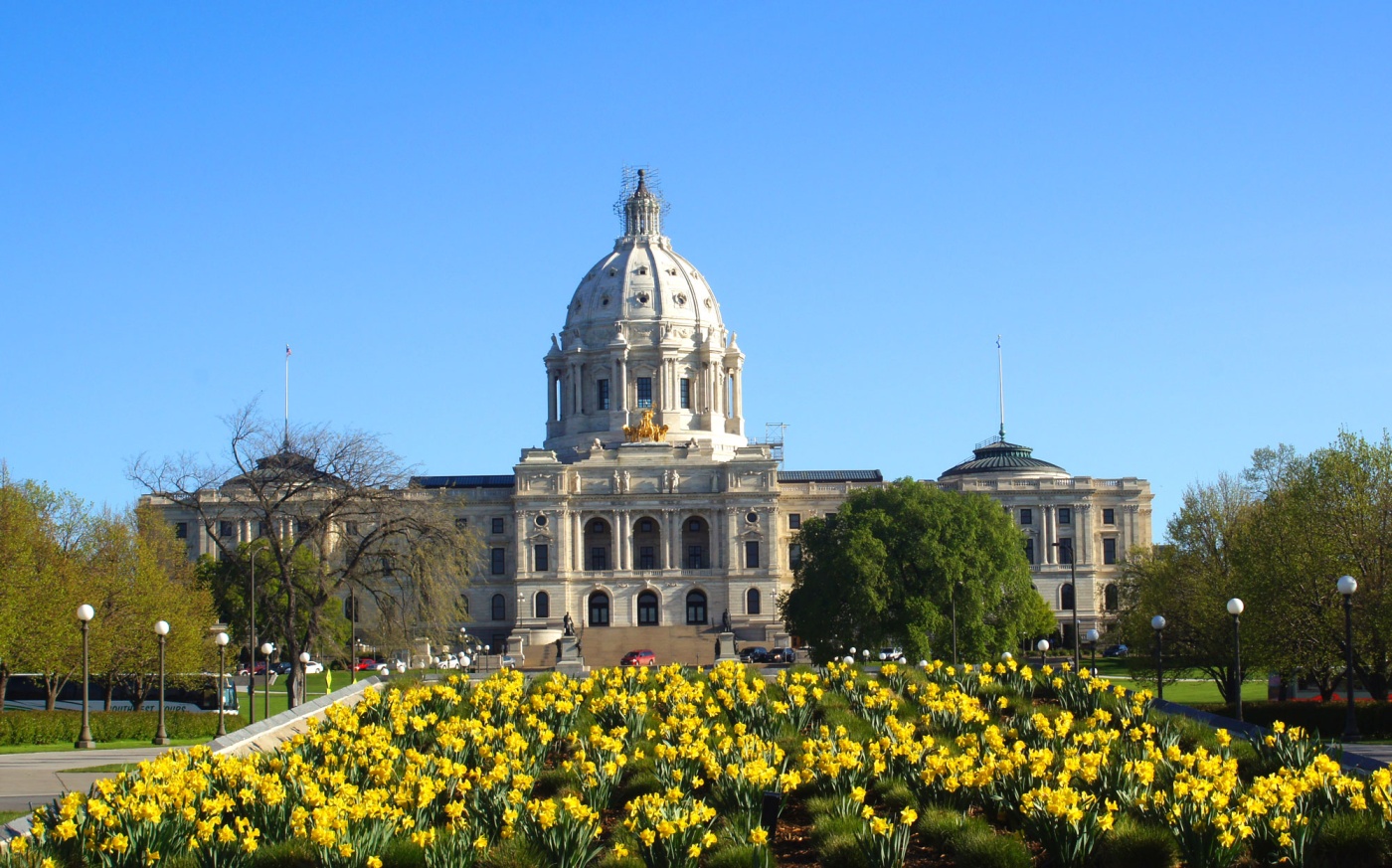This legislative session brought some of our largest victories ever, and while there is always more to do, we couldn’t be more excited by what we accomplished together this year. Meaningful, transformational policies and investments were made in all areas of our work. And many of the initiatives our members have supported for years finally made it across the finish line.
Early in the session, legislators passed the 100% Clean Energy Bill, when paired with other climate and clean energy provisions passed this year, experts now say Minnesota leads the Midwest with our equitable transition to clean energy.
We also passed nation leading policies to protect people from toxic chemical exposure. The Lead Pipes Bill, passed with near unanimous support, commits $240 million to begin inventorying and replacing lead drinking water lines across the state and sets a goal to complete the work by 2043. This is one of the largest state investments in the nation to address lead pollution in drinking water.
Minnesota is also leading on forever chemicals regulation. We now have the strongest regulations on PFAS in the country, which prohibit the nonessential use of PFAS in products by 2032, strengthen reporting requirements, and even limit their use in agricultural fertilizers.
Nearly all of Conservation Minnesota’s current priorities became law this year! Below is a list of many of the legislative accomplishments.
2023 Legislative Accomplishments
Preventing Climate Change
Polls show climate change is a top issue for Minnesota voters. For many, transitioning to clean energy is an important step in mitigating the impacts of climate change, while for others, it simply makes economic sense. We’re proud to have supported these common-ground solutions to increase clean energy while protecting our land and water from climate change-causing pollution:
- 100% Clean Energy Standard, requiring electricity in MN to be carbon-free by 2040
- Matching grants for federal funds for clean energy projects
- Electric Vehicle Rebates, Dealer Grants, and other electric vehicle incentives
- New sustainable construction materials analysis to reduce greenhouse gas emissions from concrete, steel, and asphalt in state building projects
- Solar for Schools and electric school buses
- Heat pump rebates and weatherization updates for low-income communities
- Energy transition grants to support communities that have long relied on retiring energy plants
- Clean Fuel Standard Economic Impact Study and Working Group to create a plan for clean transportation in 2024
Protecting Water Quality
In Minnesota, our lakes and rivers are our most prolific natural resources. They define our history, our livelihoods, and our future. Every year, millions of people enjoy Minnesota’s waters by fishing, boating, and swimming. This session, we were proud to play a part in passing multiple bills that will protect, steward, and clean up our waters:
- Goal to replace all dangerous lead service lines in the next 10 years and the dedication of $240 million to begin the work
- Clean Water by 2050 goal to ensure our state resources are working to make all waterways fishable, swimmable, and drinkable
- Keep It Clean bill to protect our lakes from trash left behind by winter recreators
Ensuring Access to Nature
Forests, farmlands, prairies, woods, and wetlands are an essential part of our unrivaled quality of life. Protecting public lands and preserving habitat for pollinators, fish, and wildlife is a key program area for Conservation Minnesota. Key victories for our Great Outdoors include:
- Department of Natural Resource funding to enhance access to the outdoors through the MORE (Modernize Outdoor Recreation Experience) Program
- Authorizing a voter referendum that will renew use of lottery funds for the environment
- Elk Reintroduction (in partnership with the Fond du Lac Band of Lake Superior Chippewa)
- Grant funding for the Lawns to Legumes Program to help Minnesotans plant pollinator-friendly habitats
- Annual distribution of Clean Water, Land, and Legacy funds and Environment & Natural Resource Trust Funds
Reducing Waste & Eliminating Toxic Chemicals
We’re committed to promoting healthy communities by reducing waste, reusing resources, and removing toxic chemicals from goods and resources Minnesotans bring into their homes. 2023 saw significant progress on many of our priorities:
- PFAS Ban on nearly all uses starting in 2026—one of the strictest PFAS regulations in the country
- Limiting PFAS usage in pesticides
- SCORE Funding for local governments to improve recycling and waste management
Community Investments
The 2023 community investment bills, or “bonding bills,” provide record investments in state owned infrastructure that will have a major impact on protecting air quality, improving water quality, providing communities with safe drinking water, protecting and enhancing sensitive ecosystems, and improving parks, trails, and water accesses for all Minnesotans to enjoy. Investments include:
- $247M for the Department of Natural Resources, including $2.5M to the City of Crosslake for the National Loon Center
- $60M for the Minnesota Pollution Control Agency, including $26M to a Hennepin County Anaerobic Digester that will create clean energy and reduce waste
- $26M for the MN Board of Soil and Water Resources, including $10.7M for the Conservation Reserve Enhancement Program (CREP)
- $18M for the Minnesota Zoo
- $156M for the Metropolitan Council, including 14 specific grants to city and county parks and funding for public transit
- $12M for Giants Ridge in northern Minnesota
- $501M for the Public Facilities Authority for drinking water and wastewater projects across the state
